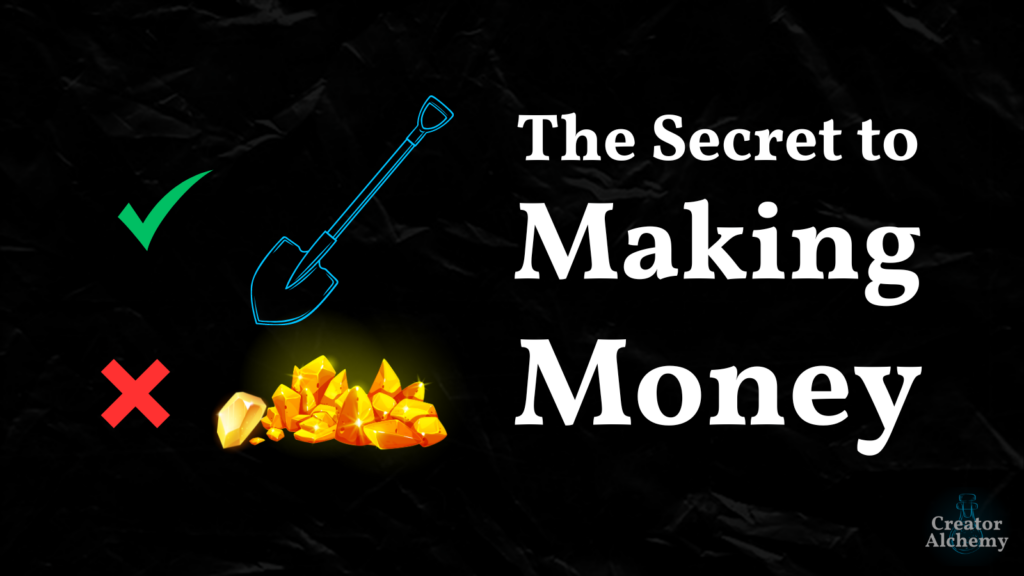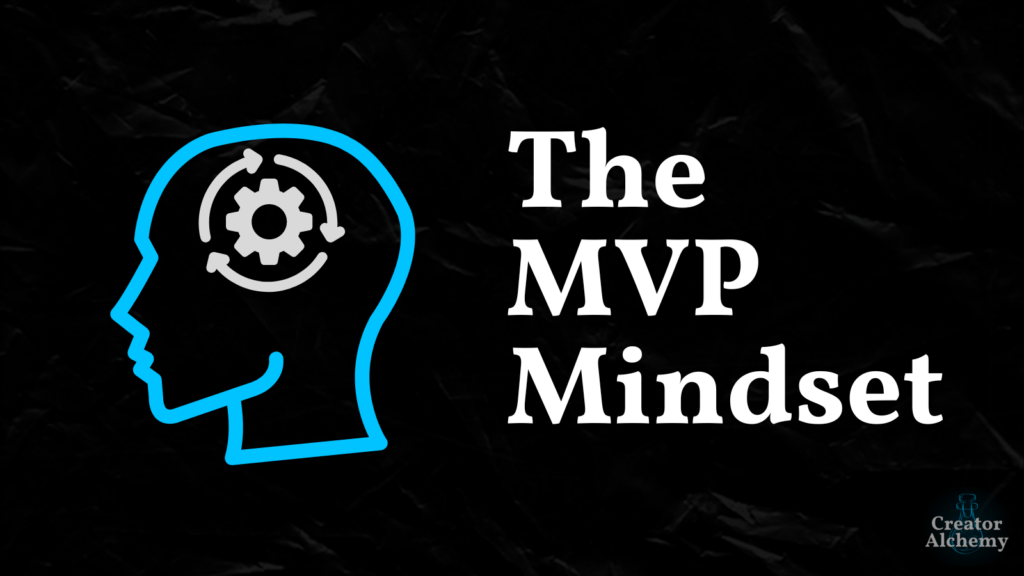“When things are going bad, there is going to be some good that’s going to come from it.
Didn’t get promoted? Good. More time to get better.
Got beat? Good. You learned.
Unexpected problems? Good. We have the opportunity to figure out a solution.“
—Jocko Willink
What if you could turn anything life throws at you into an advantage? Every setback, every unforeseen circumstance, every obstacle — all miraculously turned into stepping stones, paving the way to your inevitable success.
It sounds like something out of a movie. A superpower only comic book characters can access. But one man — one mortal — has harnessed this superpower. His name is Jocko Willink.
• • •
Who Is Jocko Willink?
Jocko Willink is a retired Navy SEAL, author of several best-selling books, including the #1 New York Times bestseller Extreme Ownership: How U.S. Navy SEALs Lead and Win, host of the top-rated Jocko Podcast, co-founder of Echelon Front — a leadership development company, and a TEDx speaker.
Jocko isn’t a self-help “guru.” He’s forged his philosophy in the fires of Hell and come back to share it with the rest of us.
Throughout his career as a Navy SEAL and other leadership endeavors, he’s faced seemingly insurmountable odds time and time again. He, like most of us, has been thrown countless curveballs by fate, the universe, or whatever you want to call it.
Yet he continues to persevere when most would quit. Maybe you’ve felt defeated or wanted to give up. Maybe you have given up.
But Jocko doesn’t.
He’s developed a living philosophy that has helped him survive literal wars, failure, loss, tragedy, and many other challenges — and he’s done it while staying calm, cool, collected, and grateful.
Can we harness some of Jocko’s power to develop the same mental discipline and fortitude to persevere when the odds are against us?
Yes.
But we have to understand his philosophy on life before we can apply it to our own.
• • •
Jocko’s “Good” Philosophy
In this video, Jocko explains how he chooses to see everything that happens in his life as good:
“It’s definitely not denying or being delusional about the situation, by any stretch. But it is also not being ‘woe is me.'”
His philosophy isn’t about toxic positivity or “Pollyannaism” to the point you lose touch with reality. It’s about embracing reality and choosing to direct your efforts toward the one thing you control: your mindset.
You can’t change what has happened to you or go back in time. You can’t control what happens in the world or how others act. And wishing the world to be different or spiraling into the “Shoulda, Woulda, Coulda” mental trap is useless.
You control your mindset. So when something unexpected happens to you — when an obstacle gets put in your path — you can choose to see it as a blessing. You can choose to look at it and say, Good.
Or, in best-selling author and modern Stoic Ryan Holiday’s words:
“The obstacle in the path becomes the path. Never forget, within every obstacle is an opportunity to improve our condition.”
You can choose to be grateful for the obstacles in your life — because overcoming adversity is the only way to improve.
No struggle — no success.
No trial or tribulation — no triumph.
No dark night of the soul — no heroic victory.
The “Good” philosophy is powerful and practical. And it’s easy to remember:
“Deal with reality. Accept reality. Then find the good in it, and move forward.”
—Jocko Willink
He may have popularized the “Good” philosophy, but Jocko didn’t invent it. The idea of taking what life throws at you and using it to become stronger has been around for centuries.
• • •
Other “Good” Strategies: Amor Fati and ACT
What if you could learn to love whatever life throws at you? What if you could shed the mental baggage holding you back and pursue a meaningful life — a life aligned with your values?
You can, with a little help from ancient philosophy and modern psychology. Here’s how:
Amor fati
“A blazing fire makes flame and brightness out of everything that is thrown into it.“
—Marcus Aurelius
Amor fati is a term popularized by Friedrich Nietzsche, which means “love of fate.” It goes beyond merely tolerating something bad happening. It’s about being thankful it happened — loving that it happened. It seems radical for us to be excited when tragedy occurs, but our mindset — how we choose to see the world — is the only thing we control when calamity occurs. Complaining rarely makes a situation better, so why make bad things worse by bemoaning them when we could adopt an empowering mindset instead?
Think about your goals and what you want out of life. How likely do you think it is that your success will be a straight path without any difficulties? Then think about the likelihood that you’ll face hurdle after hurdle on your way to the top, like so many people throughout history have?
Your perception influences your reality. If your goal is to develop the fortitude to persevere, amor fati gives you the ability to find opportunities embedded within any difficulty.
Everything is fuel for your fire.
ACT
Everything can be taken from a man but one thing: the last of the human freedoms — to choose one’s attitude in any given set of circumstances, to choose one’s own way.
—Viktor Frankl, Man’s Search for Meaning
Modern psychotherapy is rooted in ancient philosophy. Acceptance and Commitment Therapy, or ACT, is about accepting things as they come and working with what you have.
ACT teaches cognitive flexibility through three steps: focus on being present, accept the reality of the situation, and take action based on your values. Instead of fighting against negative thoughts, feelings, or situations, ACT teaches you to accept what has happened and commit to chasing a life filled with what matters most to you.
What are your values? How can they act as a guiding light when you’re thrown into the raging storms and chaos of life?
• • •
Philosophy In Action
“External things are not the problem. It’s your assessment of them. Which you can erase right now.“
—Marcus Aurelius
Knowing and doing are two different things. It’s all well and good to understand a concept, but it’s pointless if you never apply it.
Whatever you consistently practice, you get better at — good or bad.
- The more you worry and catastrophize, the better you’ll get at being anxious.
- The more you tell yourself you’re hopeless and the world is out to get you, the more emotionally fragile and depressed you’ll feel.
- The more you make healthy diet and exercise decisions, the healthier you’ll get.
- The more you practice guitar, the better you’ll get at playing guitar.
So be mindful of the habits you practice.
Here are ways you can practice the “Good” philosophy in your own life:
When you’re running late
You may silently thank a green light after hitting one when you’re running late, but how often do you show gratitude to a red light?
No matter how much you curse the redlight you just hit, it won’t change any faster — it’s outside your control.
Instead, you can say, Thank you. I’ve gotten sloppy with my time management. I’m grateful for this wake-up call to practice being more disciplined in the morning to wake up and leave earlier next time.
Green lights don’t motivate you to practice self-discipline. Red lights do.
When you get fired
“There is no good or bad without us, there is only perception. There is the event itself and the story we tell ourselves about what it means.”
—Ryan Holiday, The Obstacle is the Way
I had this happen not too long ago. I was fired without warning or reason. The boss gave me some excuse about program expansion and downsizing, meaning it had nothing to do with my actual performance or contribution to the company. No paycheck and no health insurance during a global pandemic — awesome.
So what words echoed in my head after the obligatory flurry of cuss words?
Good.
Amor fati.
Comfort breeds complacency. A steady paycheck is a surefire way to avoid stepping out of your comfort zone. I chose to see this obstacle as an opportunity to dive full-force into my goal to make psychology accessible and help people take back control of their mental health and live a better life — through writing articles like this one. Had I not had this living philosophy to guide me, I might have spiraled into anxiety-fueled paralysis. Instead, I was able to be grateful for the opportunity — to love the hand fate dealt me at that moment.
When you get injured
In the worlds of athletics, weightlifting, and martial arts, an injury can be mentally and physically debilitating. But it doesn’t have to be.
Broke your arm in martial arts? Good. Since you can’t punch, you have the opportunity to focus on improving your kicks.
Tear a muscle lifting? Good. Now you can focus on proper form with light weights instead of sacrificing form for a high benchpress max.
Injure your ankle and have to sit out a few games? Good. Now you have the opportunity to study the game more — both your team and the opposing ones. Now you can get the bird’s eye view of the situation instead of being in the middle of the action. When you come back, you’ll have a new perspective to bring to your team.
If you don’t sustain an injury, you keep doing what you’ve been doing — whether or not it was working.
When someone betrays you
Someone cheated on you, broke up with you, or lied to you?
Good.
What do you say to someone who’s betrayed you?
Thank you for showing me your true self. Now I can stop investing myself in someone you doesn’t appreciate it. My time and energy are finite; I want to invest them in the right people.
Now you have a greater appreciation for loyal friends, and you’ve learned how to spot red flags in the future.
Had they not betrayed you, you would’ve kept giving yourself to someone who never cared in the first place.
When you lose someone
This is the hardest concept to sell, but bear with me. It’s not that you’re happy someone passed away. It’s that you’re choosing to be grateful for the lesson their passing can teach you.
Most of us spend our lives pretending death doesn’t exist and that everyone we love will continue being around forever.
So we mute Mom’s call. We wait a few days to text Dad back. We’ll visit Grandma next month because we’re too busy right now.
But one day, Mom won’t call anymore. We’ll only have old texts from Dad. Grandma’s house will be empty.
Losing someone wakes us up from our delusion that things won’t change. It reminds us to be grateful for what we have while we have it. It teaches us the concept of memento mori — remember you will die. So spend time doing the things you love with the people you love while you can.
When you struggle to lose weight
Cara came to therapy because she struggled with obesity. She was near retirement and had several health complications that made it damn near impossible for her to lose weight.
She had tried every diet out there — keto, low carb, low fat, intermittent fasting, Weight Watchers, you name it — nothing worked. She couldn’t qualify for weight loss surgery and had been to numerous physicians and therapists — nothing worked. Even if she could qualify for surgery, her physician wasn’t hopeful it would do much.
Good.
My suggestion to her?
“Throw out your scale. Your physician weighs you when you come to your appointments and doesn’t think there’s any medical reason for you to monitor your weight at home. So throw it away.”
Cara was weighing herself multiple times a day every day; it had become part of her routine. Her mood — whether she had a good day or a bad day — was dictated by three numbers on a scale. If the number was lower, it was a good day. If it was higher…doom and gloom and self-loathing.
When she stopped weighing herself, she stopped obsessing over the number. She focused on eating healthy, spending time with her family, and repairing her relationship with herself and her body. Without the constant nagging of “How much do I weigh today?” in the back of her mind, she was able to live according to her values.
Had she been able to lose weight or qualify for surgery early on, she may never have repaired her self-esteem — it would’ve always been dependent on her weight.
• • •
Key Takeaways
Instead of my usual end summary, I’ll let Jocko speak for himself:
“When things are going bad, don’t get all bummed out. Don’t get startled. Don’t get frustrated. If you can say the word, “Good,” guess what? It means you’re still alive. It means you’re still breathing. And if you’re still breathing, well then, hell, you still got some fight left in you. So get up. Dust off. Reload. Recalibrate. Reengage. And go out on the attack.”
How will you apply the “Good” philosophy to your life?



